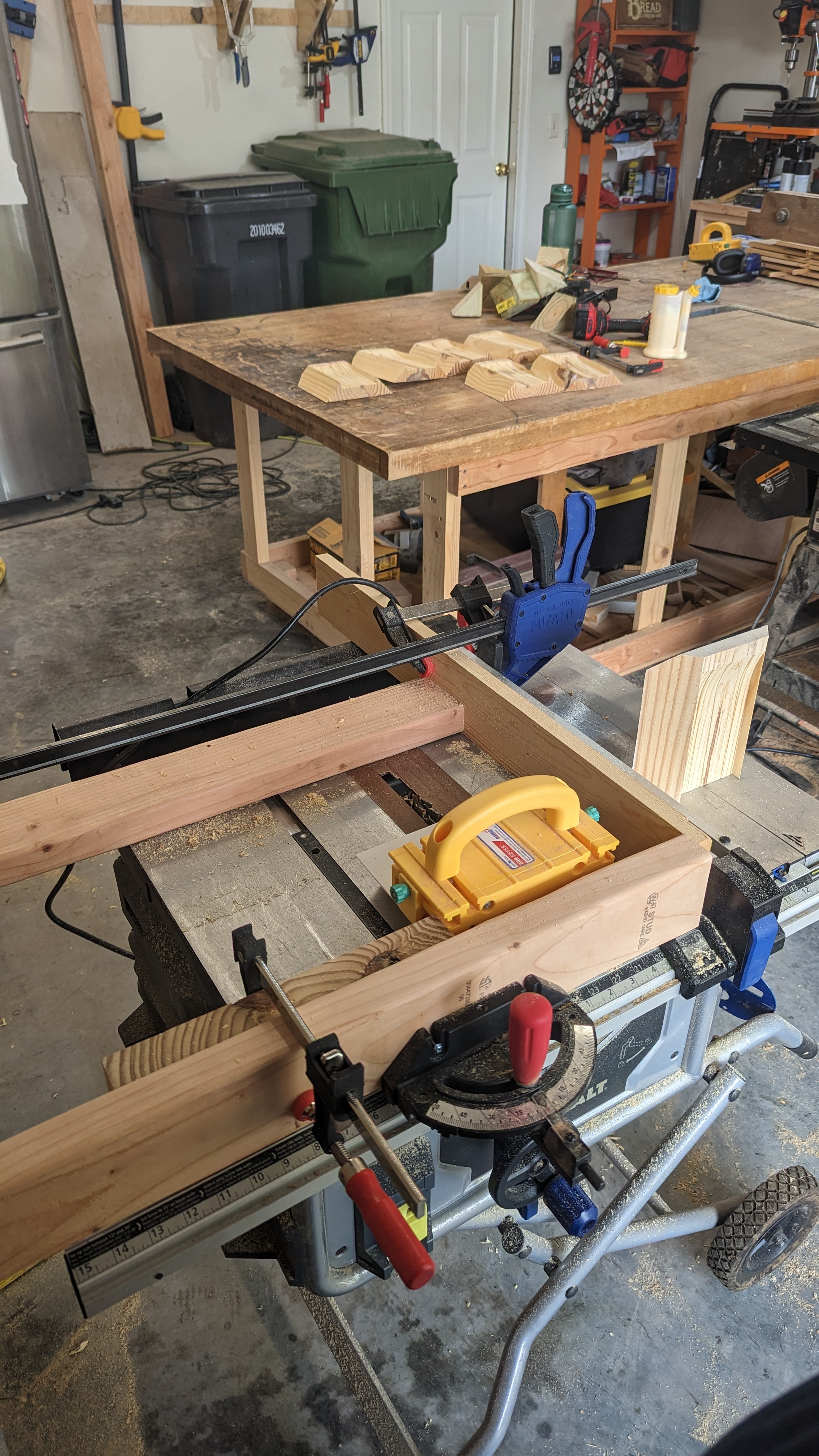this post was submitted on 15 Jun 2023
44 points (95.8% liked)
Woodworking
7146 readers
140 users here now
A handmade home for woodworkers and admirers of woodworkers. Our community icon is submitted by @[email protected] whose father was inspired to start woodworking by Norm and the New Yankee Workshop.
founded 2 years ago
MODERATORS
you are viewing a single comment's thread
view the rest of the comments
view the rest of the comments

Can you explain how the jig works? I'm not seeing it.
For sure! The work piece is a piece of post base trim under my microjig gripper (the yellow thing, they are super handy and safe push sticks) that I needed to cut some wide dados in the back of to accommodate brackets I forgot to account for when I batched out all these trim pieces. But I don't want the dados to go all the way through so that the trim will still look normal once it's tacked in place. So I clamped a 2x4 behind the blade to stop the workpieces travel just before the blade would have gone all the way through.
The miter gauge has a 2x4 screwed into it and has some scrap clamped on the left side as a stop block for the right most portion of the cut. I then hog out swaths with the dado blade and move the workpiece to the right until it hits the fence which serves as a stop block for the left most portion of the dado cut.
The fence has a board clamped to it because this is my dedicated dado saw and I just never take it off.
I hope that makes sense the way I described it, but basically I've just created a jig where the work piece literally cannot be cut anywhere except for where I want it to. I'm just a dummy in a garage so I try to set things up so I can pretty mindlessly batch out things that are identical.
Also bonus PSA you should never use a miter gauge and a fence simultaneously on a through cut because it is damn near guaranteed to kick back at you. This operation is only safe when you are making non through cuts such as dados or rabbets.